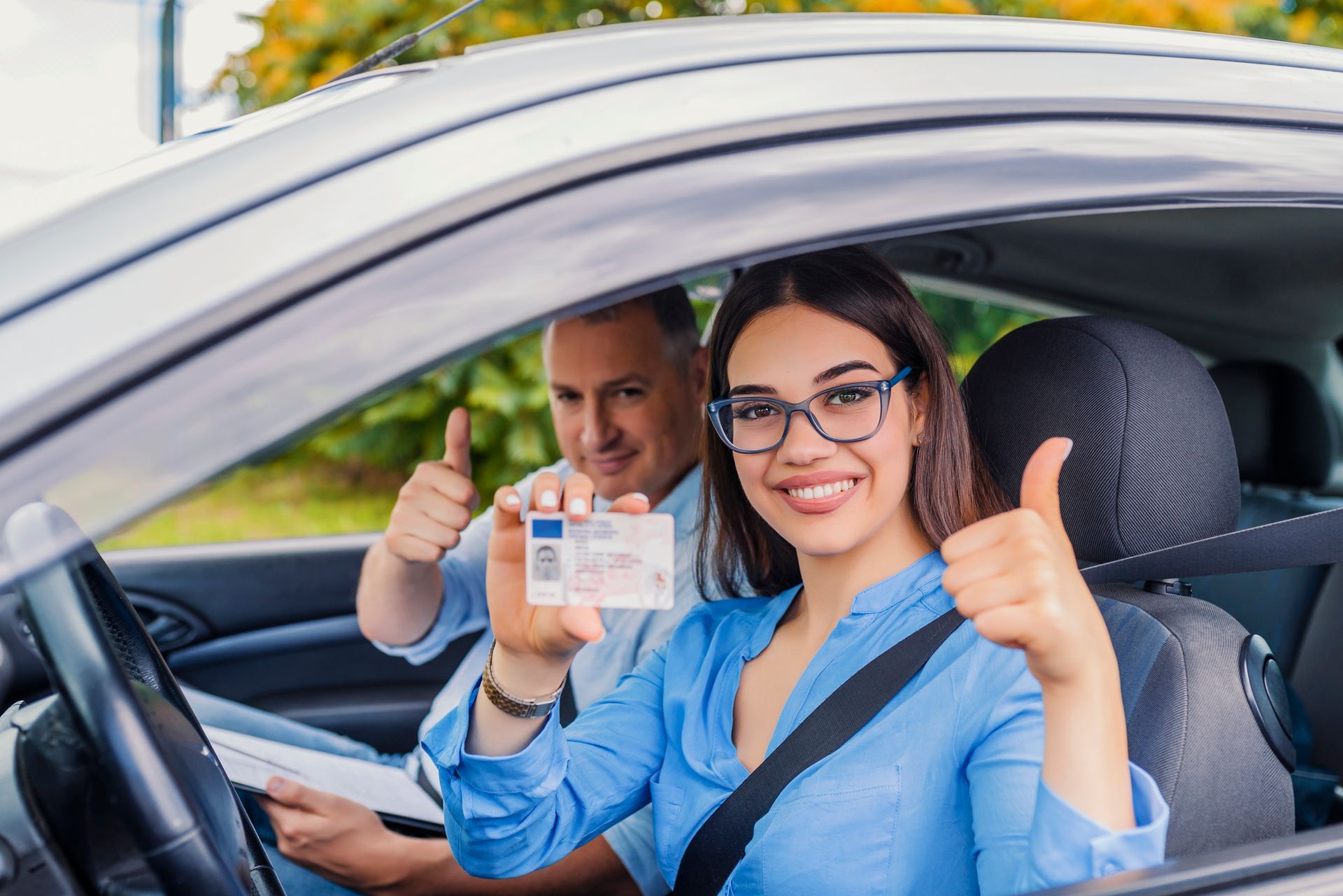July 5, 2024
Driving is a beloved independence for many seniors, allowing them to stay active, connected, and in control of their own schedules. However, it's essential to prioritize safety on the road to ensure a smooth and secure journey. In this comprehensive guide, we will explore the key strategies and tips for senior driving safety, empowering older adults to master the road with confidence. The importance of senior driving safety Driving safety is crucial for seniors as it not only protects them but also ensures the safety of other road users. As we age, our physical and cognitive abilities naturally change, which can affect our driving skills. By understanding the importance of senior driving safety, we can take proactive measures to reduce risks and enjoy a fulfilling driving experience. It's vital for seniors to recognize that safe driving is not just about following traffic rules but also about adapting to age-related changes and taking necessary precautions. This guide aims to provide valuable insights and practical advice to enhance senior driving safety and promote responsible driving habits. Common challenges faced by senior drivers Senior drivers face various challenges that can impact their ability to drive safely. One of the most common challenges is age-related changes in vision and hearing. As we get older, our eyesight tends to deteriorate, making it harder to see clearly and judge distances accurately. Hearing loss can also affect our ability to detect warning signals and communicate effectively on the road. Another challenge faced by seniors is a decline in physical and cognitive health. Conditions such as arthritis, muscle weakness, and cognitive impairments can affect mobility, reaction times, and decision-making abilities. It's important for senior drivers to be aware of these challenges and take appropriate measures to compensate for them. Understanding age-related changes in driving abilities. As we age, it's essential to understand the age-related changes that can affect our driving abilities. By being aware of these changes, we can adapt our driving habits and take necessary precautions to stay safe on the road. One significant change is a decline in vision. Seniors may experience difficulties with depth perception, night vision, and peripheral vision. Regular eye exams and wearing corrective lenses if needed can help address these issues. Additionally, maintaining a safe following distance and avoiding driving in adverse weather conditions can compensate for reduced visual capabilities. Hearing loss is another age-related change that can impact driving safety. Seniors should consider regular hearing tests and using hearing aids if necessary. Being attentive to sounds such as sirens, horns, and indicators can help avoid accidents on the road. Tips for maintaining good physical and mental health for safe driving Maintaining good physical and mental health is crucial for senior drivers. Regular exercise, a balanced diet, and sufficient sleep can contribute to overall well-being and help in maintaining optimal driving abilities. Physical fitness is particularly important as it affects reaction times, coordination, and flexibility. Seniors should engage in activities that improve strength and flexibility, such as walking, yoga, or swimming. Regular exercise can also help reduce the risk of chronic conditions that may impact driving, such as diabetes or heart disease. Mental health plays a vital role in driving safety as well. Stress, anxiety, and depression can impair focus and decision-making abilities. Seniors should prioritize stress management techniques, such as deep breathing exercises or meditation, to promote mental well-being. Essential vehicle maintenance and safety checks for senior drivers Regular vehicle maintenance is crucial for all drivers, but it becomes even more important for seniors. Ensuring that the vehicle is in good working condition can help prevent breakdowns and accidents on the road. Seniors should schedule regular maintenance checks, including oil changes, tire rotations, and brake inspections. It's also important to monitor fluid levels, lights, and wipers to ensure optimal visibility. Keeping a roadside emergency kit in the vehicle can provide peace of mind in case of unexpected situations. In addition to regular maintenance, seniors should also consider vehicle modifications or adaptations that can enhance their driving experience. For example, installing larger mirrors, adjusting seat positions, or using hand controls can make driving more comfortable and safe. Adaptive driving aids and technologies for senior drivers Advancements in technology have introduced a range of adaptive driving aids and technologies that can assist senior drivers in navigating the road safely. These innovations are designed to compensate for age-related changes and provide additional support on the road. One such technology is the blind spot detection system, which alerts drivers when there are vehicles in their blind spots. This can be particularly helpful for seniors with reduced flexibility or limited neck mobility. Another useful technology is the lane departure warning system, which alerts drivers if they unintentionally drift out of their lane. This can prevent accidents caused by drowsiness or distraction. Other adaptive driving aids include parking assist systems, collision warning systems, and voice-activated controls. These technologies can enhance safety and confidence for senior drivers, allowing them to navigate the road with ease. Defensive driving techniques for senior drivers Defensive driving is an essential skill for all drivers, but it becomes even more critical for seniors. By adopting defensive driving techniques, seniors can anticipate potential hazards and react appropriately to ensure their safety on the road. One key defensive driving technique is maintaining a safe following distance. Seniors should allow ample space between their vehicle and the one ahead to have enough time to react in case of sudden stops or emergencies. Another important technique is being aware of one's surroundings. Seniors should regularly check their mirrors, be mindful of blind spots, and stay alert to the actions of other drivers. Avoiding distractions, such as eating or using mobile devices while driving, is paramount to defensive driving. Additionally, seniors should practice patience and avoid aggressive driving behaviors. Being courteous and considerate towards other road users can help prevent unnecessary conflicts and accidents. Planning safe and efficient routes for senior drivers Planning safe and efficient routes is crucial for senior drivers, especially when navigating unfamiliar areas or busy roads. By taking the time to plan their journeys, seniors can minimize stress and maximize safety on the road. Utilizing navigation systems or GPS devices can provide real-time traffic updates and suggest alternative routes if needed. Seniors should also consider avoiding peak traffic hours or high-risk areas whenever possible. It's important for seniors to familiarize themselves with the routes they plan to take. Being aware of potential construction zones, detours, or road closures can help seniors make informed decisions and avoid unnecessary delays or hazards. Resources and programs for senior driver education and training Numerous resources and programs are available to support senior drivers in enhancing their skills and knowledge. These resources provide valuable information, educational materials, and training opportunities specifically tailored to the needs of older adults. Local DMV offices often offer senior driver refresher courses, which cover topics such as defensive driving techniques, road rules, and the impact of aging on driving abilities. These courses can help seniors refresh their knowledge and gain confidence on the road. In addition to DMV courses, online resources and websites provide a wealth of information on senior driving safety. These platforms offer interactive quizzes, informative articles, and downloadable guides that can be accessed at any time. Seniors can also consider joining local community groups or organizations that focus on senior driving safety. These groups often host workshops, seminars, and events that provide practical advice and promote safe driving habits among seniors. Conclusion: Empowering senior drivers to stay safe on the road In conclusion, mastering senior driving safety is essential for older adults to enjoy the benefits of independence and mobility on the road. By understanding the common challenges faced by senior drivers and adopting strategies to compensate for age-related changes, seniors can navigate the roadways with confidence and peace of mind. Maintaining good physical and mental health, regular vehicle maintenance, and utilizing adaptive driving aids and technologies can further enhance senior driving safety. By practicing defensive driving techniques and planning safe routes, seniors can minimize risks and ensure a smooth and secure journey. With the availability of resources, programs, and community support, seniors have access to valuable tools and knowledge to empower them in their driving journey. By continually learning, adapting, and prioritizing safety, senior drivers can confidently master the road and enjoy the freedom and independence that driving provides. Remember, the road is yours to conquer. Stay safe, stay confident, and keep mastering senior driving safety.










